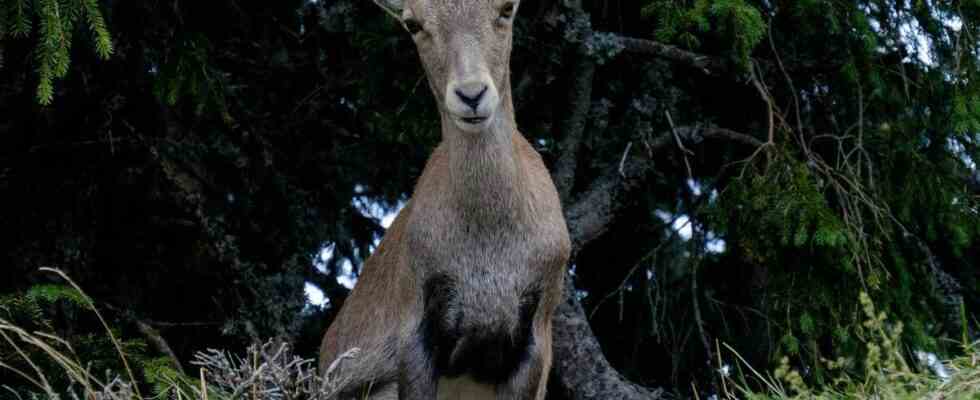The order was given by the prefect of Haute-Savoie. The operation began Monday in the Bargy massif, where 75 ibexes, a protected species, must be slaughtered until Tuesday evening out of a population of 370 individuals. The objective is, according to the authorities, to “eradicate brucellosis” and thus “preserve” the animals which are not affected by it.
In mid-March, the prefect had already published a decree authorizing the elimination of a maximum of 170 ibexes. A decree which had been suspended by the administrative court of Grenoble. This time the number was lowered to 75.
In the spring, for the first time, then at the end of September, 96 ibexes were captured in order to undergo tests carried out by the French office for biodiversity. Five of them were carriers of this contagious disease that can be transmitted to humans.
“Rapidly rebuild a viable population”
“The planned measures are not intended to eradicate the ibexes on the Bargy but to constitute a nucleus of healthy animals of around 300 animals able to quickly reconstitute a viable population free from brucellosis”, argues the Prefecture in a press release. Except that environmental associations do not share this opinion.
The National Council for the Protection of Nature has moreover issued an unfavorable opinion on this subject, considering that the measure was “disproportionate” in view of the number of sick ibexes, “four in the whole massif”.
“The slaughter of ibexes does nothing to solve the epidemic”
For France Nature Environnement (FNE), it is quite simply a “massacre”. “Since yesterday morning and until this evening, on the orders of the prefect, OFBiodiversity officers have been shooting and killing unmarked ibex in the Bargy massif. No test is carried out when we know that around 96% of them are healthy”, she denounces, recalling that many scientists explain that “the slaughter of ibexes does not in any way regulate the epidemic “. “Firstly because it is impossible to eliminate them all, then because this kind of operation leads to dispersion”, underlines the association.
“Brucellosis presents a significant risk to public health and the sustainability of the Haute-Savoie agricultural model”, replies the prefecture, a few days before the visit of the Minister of Agriculture expected at the beginning of next week in Haute-Savoie.

